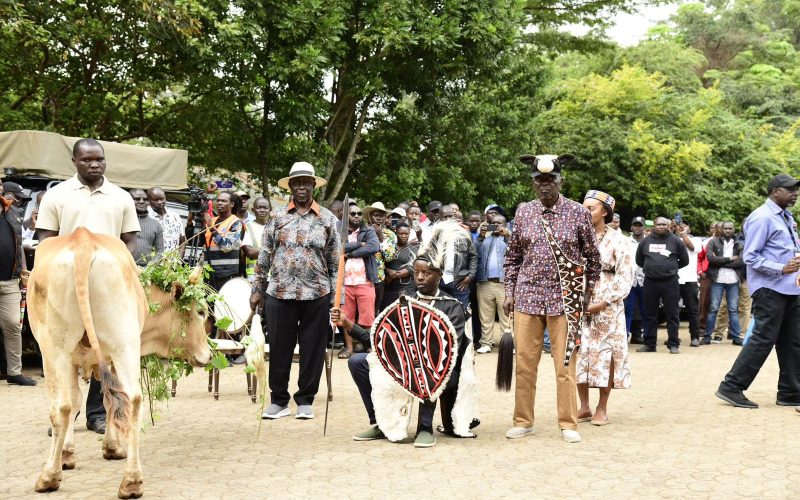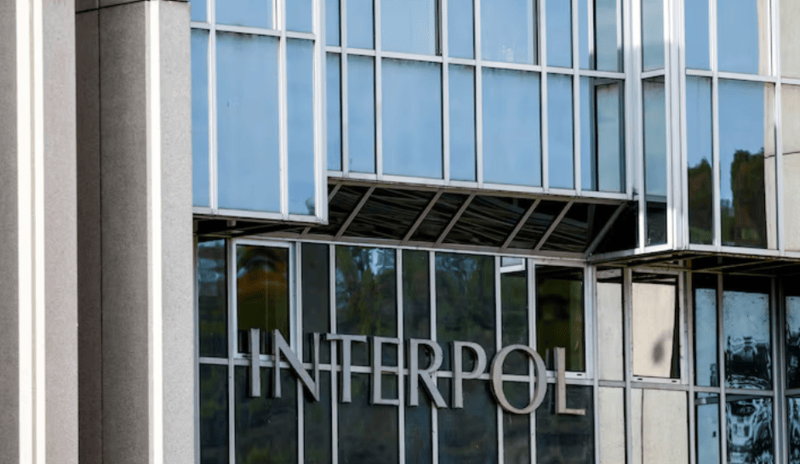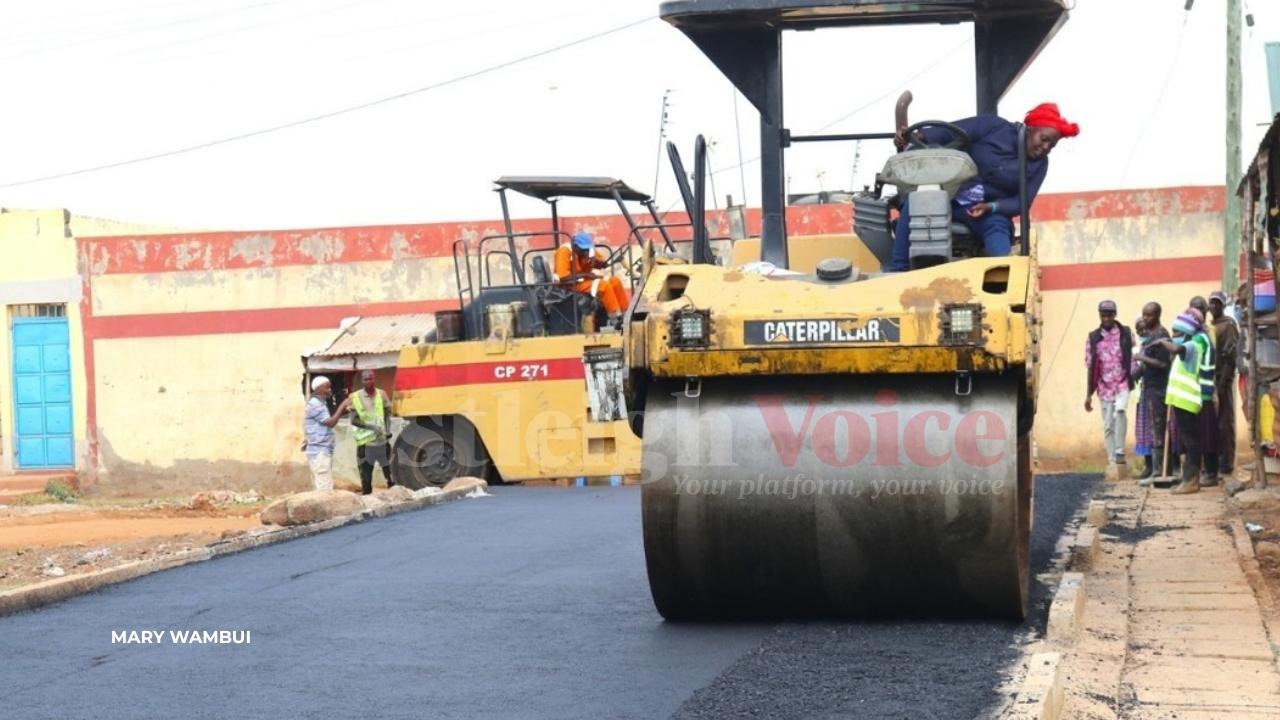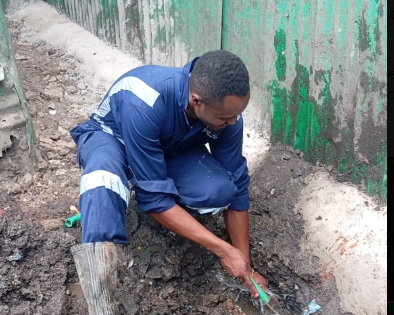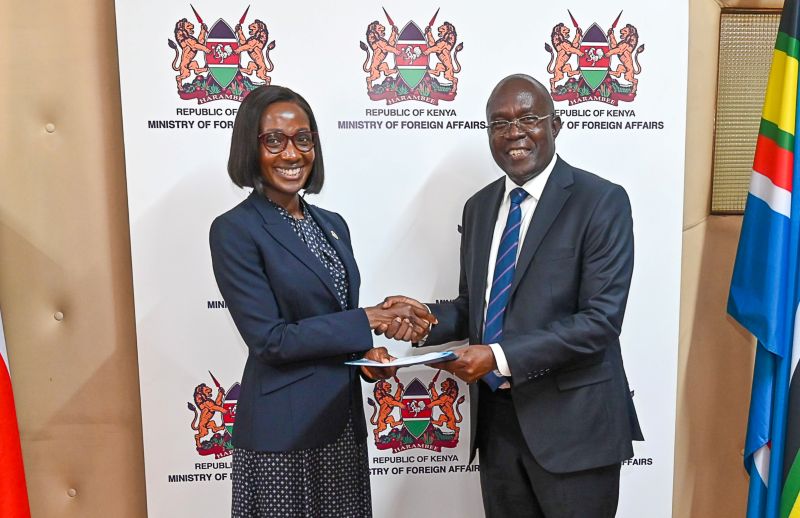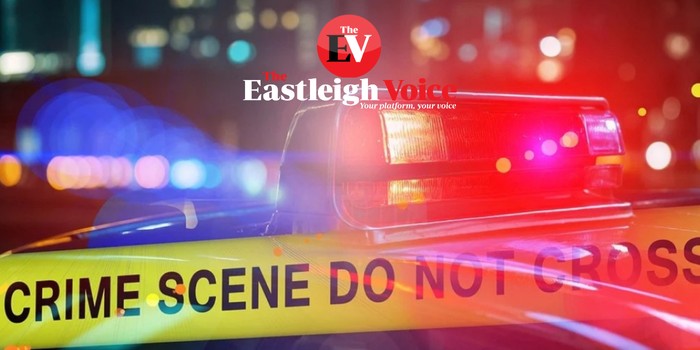Police broke law in blogger Ojwang’s arrest, says ex-IPOA commissioner as cover-up claims deepen

Waiganjo said that Ojwang’s transfer was carried out beyond the lawful jurisdiction of the arresting officers, who ignored the required procedural steps despite receiving a directive.
Former Independent Policing Oversight Authority (IPOA) commissioner, John Waiganjo, has faulted the police for mishandling the arrest of teacher and blogger Albert Ojwang, saying basic arrest procedures were violated and the law breached during his transfer from Mawego in Homa Bay to Nairobi.
Speaking during an interview with Citizen TV, Waiganjo said Ojwang should not have been physically handled if he did not resist arrest, and termed the arrest as excessive.
More To Read
- DCI says Kware murder suspect Collins Jumaisi remains at large despite arrest rumours
- Autopsies reveal Kasarani victims died from gunshots during Raila Odinga public viewing
- Court declares police killing of businessman Bunty Shah unlawful
- Blogger Ndiangui tells court DCI yet to return his laptops, phones and passport
- IPOA condemns rising attacks on police officers after constable is killed outside State House
- Vocal Africa CEO Hussein Khalid raises alarm over another death in police custody
“The touch, the handling… they say you do not need to be mishandled or even touched where you submit by act and word that you are not resisting arrest,” he said.
“In most instances, you will find that the police overdo the arrest.”
Waiganjo further stated that the transfer of Ojwang was conducted outside the lawful jurisdiction of the arresting officers.
He explained that once officers from Mawego Police Station received a directive, whether electronically or otherwise, they were required to follow a laid-down process, which was ignored.
“When the officers went to his homestead, we are not told whether the OCS was with them. If he delegated the responsibility, they needed a written order describing Albert, the offence committed, and instructions to take him first to Mawego Police Station,” he said.
Apprehension report
At the station, the Officer Commanding Station (OCS) was expected to file an apprehension report, which would then be presented before the resident magistrate’s court in Homa Bay.
“Given that Albert was not a flight risk, he had a family, his parents are there, the OCS could have granted him a police bond and required him to appear in court the following Monday,” Waiganjo added.
He noted that it would have been the magistrate’s role to issue an order for his transfer to Nairobi, based on an affidavit from the OCS Mawego and in consultation with the Nairobi-based police unit requesting the suspect.
“Once the magistrate granted the order, the officers from Central Police Station in Nairobi would then escort him. It’s a lawful, orderly process. What happened in Albert’s case was a breach of the law,” he said.
Waiganjo reiterated that such procedures are clearly stipulated in the Police Standing Orders, the Criminal Procedure Code, the National Police Service Act, and the Constitution.
“There must be a follow-up to determine whether the arresting officers had authorisation. An OCS cannot act on an electronic signal unless it fully describes the suspect, the offence, and whether it is bailable,” he said.
Defended transfer
Other Topics To Read
- Headlines
- National
- DCI
- Homa Bay
- IPOA
- Central Police Station
- Independent Policing Oversight Authority
- blogger
- Albert Ojwang
- Mohammed Amin
- John Waiganjo
- Mawego
- Police Standing Orders
- the Criminal Procedure Code
- the National Police Service Act
- Police broke law in blogger Ojwang’s arrest
- says ex-IPOA commissioner as cover-up claims deepen
Appearing before the Senate on Wednesday, Director of Criminal Investigations (DCI) Mohammed Amin defended the move to transfer Ojwang from Homa Bay to Nairobi, insisting that it was done in line with jurisdictional requirements.
“The Criminal Procedure Code Section Cap 75 is very clear on the places of trial and jurisdiction. The ordinary place of trial for an offence is determined where the offence was committed,” Mohammed said.
Complex
He added that since the alleged offence was cybercrime-related, determining jurisdiction was complex given the digital nature of such crimes.
Responding to Kakamega Senator Boni Khalwale, who had questioned the legality of transferring the suspect without a court order, Mohammed said: “We do not require a court order to move a suspect from one police jurisdiction to another. The deceased was booked out of Mawego Police Station at 1600 hours and booked into Central Police Station at 2132 hours.”
Mohammed also dismissed claims that Ojwang was held at DCI headquarters, clarifying that he was driven directly to Central Police Station in a Subaru Forester registered to the directorate.
“From Homa Bay, he was taken straight to Central Police Station where he was booked and not DCI headquarters as alleged,” Amin told senators.
He added that three minutes after being booked, Ojwang was allowed to speak to his wife. He also explained that Mawego Police Station had only recently been elevated and did not yet have surveillance systems installed.
Final moments
New CCTV footage has since surfaced showing the final moments before Ojwang’s death at Mbagathi Hospital.
The footage shows a police vehicle arriving at the facility at 1:35 am.
Three officers exit, two of whom proceed to the casualty section while Ojwang remains unattended in the back. At 1:46 am, the officers return with a stretcher, but it takes another 13 minutes to load Ojwang onto it with the help of a hospital guard.
Ojwang was wheeled into the casualty ward at 1:59 am and declared dead by 2:11 am. The police vehicle left the hospital with his body at 2:15 am.
Unresponsive
A hospital report described Ojwang as unresponsive upon arrival, with extensive injuries, a swollen face and multiple bruises on his limbs—indications of a violent assault.
On Friday, June 13, another suspect was arrested in connection with the case. Authorities believe the man, a technician who installed CCTV cameras at Central Police Station, was involved in deleting key footage.
Sources say the man was called to the station on June 8 by a senior officer and taken to the office housing the DVR system. He was allegedly asked to delete footage from June 6 and 7. The technician, who had installed all 25 cameras and the DVR in 2024, is said to have complied under pressure.
Investigations into Ojwang’s death, the arrest procedure, and the apparent cover-up continue to unfold amid mounting public pressure and demands for accountability.
Top Stories Today
